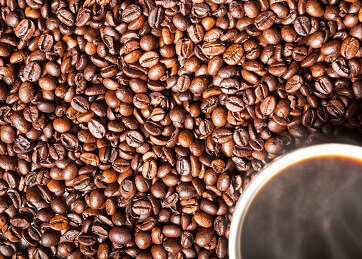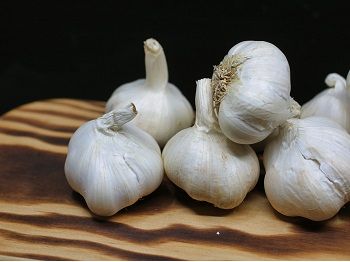Pros and Cons of Coffee for Aging Adults
Article written by Alexander Milzer - Bio in Editorial Team
From relishing that first sip of hot brew in the morning to lounging with a delicious combination of espresso and dessert in the evening, coffee is a staple for many older adults. But, believe it or not, coffee is one of the most controversial food topics circulating the aging community. Some people believe caffeine is bad for their health, while others believe it positively affects them. We know seniors love their coffee, but the question is, does it love them back?
Pros of Coffee for Senior Citizens
| Health Benefits of Coffee for Seniors | Effects |
| Improves Cognitive Ability | Reduces risk of vascular dementia by lowering incidents of silent brain infarction |
| Increases Energy Levels & Mood | Increases neurotransmitters and anti-inflammatories, helping to improve mood and energy levels |
| Natural Diuretic | Stimulates colon, making it easier to defecate |
| Reduces Risk of Type 2 Diabetes | Caffeine decreases the amount of insulin in your blood by suppressing the release of glucose from your liver. |
| Reduces Risk of Stroke | Decreases risk of stroke among people not suffering from severe hypertension. |
Improves Cognitive Ability
Coffee may be the answer to help prevent dementia. A recent study found that drinking 3-5 cups of coffee per day in middle age is associated with a decreased risk of cognitive decline at late-life by 65%. Another study demonstrated people who drink at least three coffees every day have lower incidences of silent brain infarction - a condition leading to vascular dementia. However, this research needs more exploration and replication before any definite conclusions can be drawn. Therefore, we recommend you take these studies with a grain of salt rather than digest them wholeheartedly.
Increases Energy Levels & Mood
 Coffee is not just a morning-time beverage to start your day. Studies show coffee can help you feel more awake by increasing the levels of neurotransmitters in your brain, ultimately improving mood and energy. Also, the caffeine in coffee contains a compound called chlorogenic acid - an anti-inflammatory helping to reduce depression's effect on your brain. In a nutshell, the caffeine in coffee stimulates the nervous system and makes you feel alert. So, if you are ever low on energy or feeling sluggish due to age, it may be time for some java iced up with cream and sugar.
Coffee is not just a morning-time beverage to start your day. Studies show coffee can help you feel more awake by increasing the levels of neurotransmitters in your brain, ultimately improving mood and energy. Also, the caffeine in coffee contains a compound called chlorogenic acid - an anti-inflammatory helping to reduce depression's effect on your brain. In a nutshell, the caffeine in coffee stimulates the nervous system and makes you feel alert. So, if you are ever low on energy or feeling sluggish due to age, it may be time for some java iced up with cream and sugar.
Natural Diuretic
Coffee contains caffeine, a natural diuretic. Research has shown caffeinated coffee is 60% more active than water in stimulating movement within the colon, while decaf only makes up 23%. This means that aging adults looking for little relief should try drinking some black coffee in the morning to help get things moving along. However, if you have a loose stool, we recommend staying away from caffeinated beverages and sticking to decaf coffee.
Reduces Risk of Type 2 Diabetes
People who are overweight are most prone to develop type 2 diabetes. According to America Health Rankings, 29.3 percent of people age 65+ are obese in America. Studies show people who drink coffee are less likely to develop type 2 diabetes. This is because caffeine decreases insulin in your blood by suppressing the release of glucose from your liver. In one 2013 study, people who increased their coffee intake by more than 1 cup per day over four years had an 11% decreased chance of developing type 2 diabetes than those making no changes to their coffee intake. These results suggest that increased caffeine consumption may help prevent type 2 diabetes and increase longevity. So, pour yourself a cup of Joe, get off that couch, and hit that treadmill - it's scientifically proven you'll thank yourself later on down the line (literally!).
Reduces Risk of Stroke
According to the Medical University of South Carolina, 75 percent of strokes occur in people 65 and older. Coffee has been found to reduce inflammation and can decrease the likelihood of myocardial infarction and stroke. In a collection of studies reported by the US National Library of Medicine, consuming 4+ cups of coffee per day showed a preventive effect on stroke. Coffee is also linked with a higher level of physical activity, which helps lower blood pressure and lose weight. Both are significant factors to decreasing the likelihood of a stroke. There still has not been enough evidence definitively linking drinking coffee with a reduced risk of stroke, but most of the data lean towards this idea.
Cons of Coffee for Senior Citizens
| Adverse Effects of Coffee on Seniors | Health Implication |
| Dehydration | Dizziness, Headaches, Muscle Aches |
| Heart Palpitations | Chest Pain, Dizziness, Nausea, Shortness of Breath |
| Insomnia | Irritability, Fatigue, Hallucinations |
| Anxiety | Abdominal Pain, Racing Heart, Nausea, Headaches |
| Upset Stomach | Cramping or Sharp Pain |
Leads to Dehydration
 Coffee, as a stimulant, naturally makes us feel more awake. But what about all those pesky bathroom breaks? The caffeine in coffee causes us to urinate more frequently, which can ultimately decrease hydration levels. However, medical experts agree each cup of coffee counts towards our daily fluid intake because it is mostly water and contains other beneficial elements such as antioxidants or magnesium—both critical for good health. The downside is older adults who rely on a steady stream of java throughout the day may find themselves using the bathroom more than usual and thus become dehydrated. Dehydration has a whole slew of negative health implications such as headaches, dizziness, and muscle aches, among other things, so be sure to monitor your caffeine to non-caffeine ratio throughout the day.
Coffee, as a stimulant, naturally makes us feel more awake. But what about all those pesky bathroom breaks? The caffeine in coffee causes us to urinate more frequently, which can ultimately decrease hydration levels. However, medical experts agree each cup of coffee counts towards our daily fluid intake because it is mostly water and contains other beneficial elements such as antioxidants or magnesium—both critical for good health. The downside is older adults who rely on a steady stream of java throughout the day may find themselves using the bathroom more than usual and thus become dehydrated. Dehydration has a whole slew of negative health implications such as headaches, dizziness, and muscle aches, among other things, so be sure to monitor your caffeine to non-caffeine ratio throughout the day.
Can Cause Heart Palpitations
The National Heart, Lung and Blood Institute defines heart palpitations as "an awareness of, or feelings in, the heart which is not caused by any associated chest pain.” Several different stimuli can bring on palpitations, and caffeine can be one of them. In some cases, especially among aging adults with underlying heart conditions, heart palpitations can occur due to caffeine levels. Heart palpitations are not dangerous by themself; however, they could lead to chest pain, shortness of breath, dizziness, and nausea. They also could be a sign of a more severe health implication, such as coronary heart disease. You can get around this response by drinking decaffeinated coffee or tea. Your best bet is to avoid caffeine if it makes your heart beat irregularly and if you have an underlying condition that prevents regular blood flow to your heart, like atrial fibrillation.
Can Cause Insomnia
Many seniors enjoy their morning cup of coffee, but they should be careful not to drink it too late in the day. Why? Because caffeine can disrupt sleep cycles, leading to insomnia when consumed after 6 p.m. - a time point when our body is no longer stimulated by daylight, and we naturally want to wind down for bedtime. This is due to caffeine blocking adenosine receptors in our brains, a sleep-promoting chemical that plays a vital role in our natural circadian rhythm. Sure, this is beneficial when attempting to stay awake and mentally stimulated during periods of lackadaisical activity like reading or studying. However, since adenosine builds up throughout the day and peaks at night when it’s time for bed, it might be challenging to get some shut-eye when you want it the most. The effects of caffeine usually last up to 6 hours, so for seniors who love an afternoon cup of Joe, we recommend not drinking coffee past 1 pm or simply switching to decaf.
Can Cause Anxiety
The caffeine in coffee can help seniors feel more awake, alert, and focused for hours after drinking it. But too much of this stimulant can cause anxiety. That’s because caffeine replicates, or mimics, many of the same feelings of anxiety, such as abdominal pain, racing heart, nausea, and headaches. For many people, the adverse effects of caffeine will go unnoticed. However, for people sensitive to caffeine or chronic anxiety, drinking coffee could exacerbate the symptoms, making them feel more anxious. According to WebMD, an average cup of home-brewed coffee has about 100 mg of caffeine, compared with 250 mg in a tall Starbucks coffee. If you are a coffee lover but are experienced increased anxiety, try brewing your own at home rather than going out.
Can Cause an Upset Stomach
Our digestive system runs on acid, meaning we need acids to break down the food and beverages we drink throughout the day. The problem occurs when we have too much gastro acid in our stomach. Coffee is acidic, so when you drink coffee, it is adding more acid to your stomach. People who tend to get an upset stomach after drinking coffee might want to switch to cold brew coffee because it is less acidic. You can also eat high alkaline foods while drinking coffee, such as bananas, almonds, and beets. However, the acidity of coffee might not be the only thing upsetting your stomach. Caffeine could be the other culprit because it forces your stomach to create more acid. If that’s the case, your best bet might be to drink decaf.
Is Coffee Acidic or Alkaline?
Some people have the occasional coffee, while others drink coffee throughout the whole day. Many seniors prefer to drink their coffee "black" without anything else added, while others like to mix their coffee with sugar and milk to add flavor and sweetness. But there's one thing for sure; you need to drink coffee with the correct PH levels for your body.
The letters pH stands for potential of hydrogen and is a measurement used to determine how acidic or basic a solution is. A low pH represents an acidic solution, while a high pH means a basic solution. The pH scale ranges from 0-14, with neutral being at a 7. When a solution is lower than a 7, it is considered acidic, whereas a solution higher than 7 is deemed basic or alkaline. Nearly all coffee beans are acidic, with a pH level ranging from 4 to 5.
The acid in coffee is a big part of what provides its flavor. Tartness, pungency, and sourness are several sensations you may experience when putting a freshly brewed cup to your lips. If you prefer your coffee bold versus smooth, or vice versa, the answer might be in the beans’ acidity, based on the soil content they were grown.
But here’s the big question: is the acid in coffee good or bad for you? The answer depends on how your body reacts to increased acidity. If you experience stomach pain, acid reflux, or toothaches, most likely, your body is reacting negatively to the coffee’s acidity. This doesn’t necessarily mean you need to give up your much-needed daily brew. Simply add milk or baking soda to make your coffee more Alkaline. You can also switch to cold brew instead of traditional brewing methods since cold water neutralizes acidity.
Why Organic Beans Are Much Better!
There are numerous benefits to choosing organic coffee over non-organic. First, organic coffee is better for your health because it is grown without synthetic fertilizers and pesticides. In countries prevalent for coffee production, such as Brazil and Indonesia, few regulations oversee the quality and amount of pesticides used. Many of these chemicals are banned in the United States, yet they still make their way into our coffee through import.
Coffee beans are rich in antioxidants. However, when you drink a steaming cup of pesticide-laced beans, you essentially are counteracting the benefit of the antioxidants. By choosing organic, you get all three: flavor, energy boost, and health benefits.
Organic beans also have less caffeine than non-organic, giving consumers more chance to sleep at night without being disrupted by energy crashes. You can easily make sure the beans you choose are organic by looking for the official USDA Organic seal on the package or carrying out a quick Google search to determine if the company is certified.




